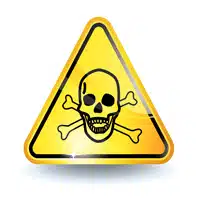Negligence is the cornerstone of Delaware personal injury law. Negligence is the foundation for personal injury lawsuits, the basis for holding people accountable for the harm they’ve caused others. Understanding the role of negligence in personal injury lawsuits is critical for both plaintiffs and defendants seeking justice in Delaware.
If you or a loved one have been injured at the hands of someone else’s negligence, trust the experienced personal injury and catastrophic injury attorneys at Rhoades & Morrow to demand justice, accountability, and rightful compensation. We proudly serve clients across Delaware, including Dover, Elsmere, Georgetown, Glasgow, Milford, Newark, Rehoboth Beach, Seaford, New Castle, Wilmington, and beyond! Our entire practice is dedicated to advocating for injured citizens across Delaware, backed by over three decades of experience and a proven track record of success. We’re ready to start fighting for you today!
Understanding Negligence
While commonly used in everyday conversation, negligence has a slightly different and very specific meaning in the legal sense. Colloquially, negligence occurs when someone fails to take proper care when doing something. However, when it comes to the law, negligence occurs when someone breaches their duty of reasonable care to another, resulting in injury. To establish that someone behaved negligently in a court of law requires that you establish four elements: duty, breach, causation, and damages:
- Duty: A duty of care, also known as a standard of care, refers to the obligation that people have to one another to act with reasonable caution and good judgment. Every person owes a reasonable duty of care to the people around them, and the reasonableness of their actions is evaluated on the basis of whether an ordinary and prudent person would have behaved that way. In essence, what an “average Joe” would have done.
- Breach: Once you’ve shown that the negligent party owed you a duty, you need to show that they breached or failed to meet that duty. You need to show that their actions weren’t reasonable and weren’t what an ordinary person would have done. For example, breaking a traffic law, failing to stop at a crosswalk, or failing to maintain a public place to reasonable safety standards.
- Causation: This element requires demonstrating a cause-and-effect link between the person breaching their duty and the injury you suffered. Causation involves proving that the person’s actions were the direct cause of your injury and that they aren’t merely loosely related.
- Damages: Once you’ve shown that a person had a duty of reasonable care, failed to act reasonably and that your injury was the result of that breach of duty, you need to show that the injury you suffered caused you harm and translate that harm into monetary damages. These damages account for harms such as pain and suffering, emotional distress, medical bills, lost wages, diminished earning potential, and the like. You have to demonstrate how the injury negatively impacted you, and what the monetary value of that impact was. It’s often hard to translate intangible things – like pain – into a dollar value, and that’s where the guidance of an experienced Delaware personal injury attorney becomes invaluable.
Comparative Negligence in Delaware
Often, an injury occurs and more than one person is to blame. The victim may even be partly responsible for their own injury. That’s where a concept known as comparative negligence comes into play, allowing the court to determine who was at fault, and allocate each party a percentage of the blame. From there, each person who acted negligently is on the hook for their percentage of the total value of the damages.
For example, if a case establishes that $10,000 worth of harm was suffered, and the negligent party was deemed 90% at fault, they’re expected to pay 90% of the total amount, or $9,000. Even if the injured victim was 10% responsible, they can still collect 90% of the award. However, Delaware uses a modified comparative negligence standard, which is identical aside from one clear distinction: an injured victim cannot collect any damages if they were more than 50% responsible for their own injury.
Experienced Delaware Personal Injury Lawyer: Rhoades & Morrow
Negligence is a critical component of any successful personal injury lawsuit in Delaware, shaping the framework to seek justice and navigate the aftermath of a tragic injury at the hands of someone else. However, navigating the legal landscape alone can be difficult, especially because negligence requires specific, complex elements to be established. The skilled team of Delaware personal injury attorneys at Rhoades & Morrow is ready to provide guidance, strategic representation, and relentless advocacy. We offer free and confidential consultations, so call us at (302) 427-9500 or fill out our online form today!





